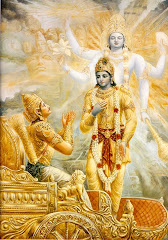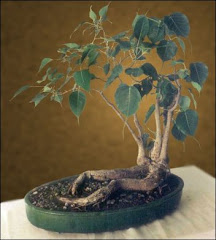
Author's Note: You can read the 1st part of this post titled "The Inimitable Sir Denis... (Part-I)": HERE.
His wife may occasionally, however, have found some of his quips difficult to take. Once, asked by a stranger during the Thatcher era (she was the PM for over 11 years) what his wife did, he replied: "She has a temporary job." It summed up his wry, dry attitude to political life in a nutshell. Thatcher refused press interviews and only made brief speeches. When he did speak to the press, he called Margaret "The Boss".
His twins - The Hon. Carol Thatcher and her twin brother, Sir Mark Thatcher, Bt, were born six weeks prematurely in 1953. According to Thatcher, Denis Thatcher responded to seeing his offspring for the first time; "My god, they look like rabbits. Put them back." Carol studied law at University College London before moving to Australia in 1977 to begin a journalism career. While there, her mother was elected Prime Minister. Thatcher has said; "You need quite good shock absorbers and a sense of humour to be the Prime Minister's child." Mark's business dealings at the time that his mother was the Prime Minister were the subject of much press attention... and embarrassments.
If you think that the popular adage "Behind every sucessful man there is a woman" cannot undergo a role reversal... think again. Sir Denis was known as an irreverent, good-natured man with a talent for friendship. Margaret Thatcher often acknowledged her husband's support. In her autobiography ("The Downing Street Years") she wrote: "I could never have been Prime Minister for more than 11 years without Denis by my side." Lady Thatcher paid tribute to Denis (in her autobiography), saying he was a "fund of shrewd advice and penetrating comment". He saw his role as helping her survive the stress of the job, when he urged her to resign on the 10th anniversary of her becoming Prime Minister, in 1989, sensing that otherwise she would be forced out (it happened a year later) - "I think she was ready to go. Not to be kicked out. Go at the top. Undefeated."
Mrs Thatcher had seemed unbeatable at home and unassailable abroad. She could have accepted being voted out of 10 Downing Street through a ballot box, as Winston Churchill had been in 1945. What she could not stomach was the reprehensible betrayal by her own Conservative colleagues who, in a secret conclave, voted her out of a job she could do better than all of them put together. Perhaps she had said as much to them, once too often. Initially, undaunted by the erosion of their support, she told reporters waiting outside No. 10 Downing Street: "I fight on, I fight to win." Inside, she gave in when her husband - Denis - told her what he thought. The advice Denis Thatcher gave to his prime minister wife? Mrs Thatcher recalled that moment of truth: "Affection never blunted honesty between us. His advice was that I should withdraw. 'Don't go on, love,' he said." She resigned on November 22, to preserve "the unity of the party and the prospects of victory in a general election."
Denis Thatcher's one public interview, which took place in October 2002, was released as a DVD, 'Married to Maggie', after his death. In it he called John Major a ghastly Prime Minister and said it would have been a good thing if Major had lost the 1992 general election. "It would have been a very, very good thing if the next election after Margaret went we had lost." He also said he thought his wife was the best Prime Minister since Churchill. "The whole of the situation of the Conservative Party today springs from that night when they dismissed the best prime minister the country had had since Churchill." He further added, "More people deserted our party and we have never recovered."
Interestingly, Margaret Thatcher had been a kind of mentor to Benazir Bhutto. While Benazir was at Oxford, she was invited to tea by Mrs. Thatcher, who was then the Opposition leader in the House of Commons, and was returning her father's hospitality. Despite their age difference, the two women had much in common, and became fast friends. They were brought even closer together when they were both Prime Ministers, and they consulted frequently on their scrambler telephones, sometimes planning common strategy, sometimes charting the political downfall of a common foe.
Well known journalist Mary Anne Weaver asked Benazir one morning (during the course of an interview), as they sipped coffee in the later's Karachi sitting room, what the basis of her friendship with Lady Thatcher was.
"Oh, I'm very fond of her," she said, perking up immediately. "Of course, she did many things that I can't defend: her cuts in health and education, for example. But privatization, in the Thatcher sense, was innovative. I admire it enormously. And she has political conviction; she's not an opportunist, and she doesn't test the wind. She goes where she wants to go. I admire her single-mindedness. It's far better to have firm convictions than to study the Gallup Polls. And she's got tremendous courage. I remember the Falklands War. There were many who felt she was foolhardy. The Falklands were far away, small, unknown. But she fought for them, as some women wouldn't have had the courage to do. And with Bosnia, again, I admired the way she spoke out; that's leadership. I can't bear smoke-filled rooms and weaselly politics."
The two women had met over scones and tea sandwiches at the Dorchester Hotel one afternoon, when the power struggle between the President and the Prime Minister (in Pak) was assuming a threatening form. Benazir (then the Opposition leader) briefed Lady Thatcher, and asked her, "What should I do?" "Side with neither of them," Lady Thatcher advised. "They will use you and dump you. Let them fight it out and bleed each other."
And that is exactly what they did.
Benazir idolised Lady Thatcher... apart from Joan of Arc of course. Her father (Zulfiqar Ali Bhutto) was never her role model, and all this talk of dynasty and inheritance - that of her father's party and personal qualities... is pure and unadulterated poppycock. Barely 24... just out of college... she had returned to Pakistan (a little over a week before the coup d'état by General Zia-ul-Haq... which overthrew her father's govt. The military later hanged him on trumped up/flimsy charges... in collusion with the judiciary) to join the diplomatic service, after 8 years of studies at Harvard and Oxford respectively. She did not have any formal training for a political role... and certainly did not learn politics from her father. She learnt politics and the art of survival in the snake pit of Pakistani politics entirely on her own... through trial and error... under the full glare of the media.
The party which is now headed by her son Bilawal and widower Asif Ali Zardari is essentially a matrilineal lineage (in a fiercely patriarchal, tribal and feudal society). The significance of her children taking on her name and her widower stating that he too wishes to be buried beside her (after his death) are immense too... in the Islamic context and not just vis-a-vis Pak and/or South Asia. She was a Rajput muslim woman (and a descendent of the great Salahuddin Ayyubi - also known as Saladin - from her mother's side) who in a deeply tribal, feudal, class and caste conscious Islamic society married a man outside her caste. That too someone who belonged to a 'lesser tribe' and is her social inferior. 'Zardari' means 'people with money' but they were originally camel herders. She retained her own name (her father's name) post marriage... and chose to be buried in her own family graveyard (that of her parents and forefathers) and not that of her husband's.
All these actions have far more significance... in the Islamic context... but is usually glossed over. Especially by the media... both foreign and domestic, who never tire of asking while rolling their collective eyes: 'How can she, a graduate of Harvard and Oxford settle for an arranged marriage?' Her life was unique and so has been her contributions and achievements. She was a woman who truely lived up to her name. An extraordinary, complex and fascinating woman... the like of whom the world will never see. Not for a very, very long time indeed. Much of the opposition and derision of Zardari stems from the fact that he draws his power from a larger-than-life woman rather than some 'macho' General, feudal lord, businessman/industrialist, Mir or Pir (hereditary saint.)
Both mentor and mentee have an orchid named after them. Dendrobium Margaret Thatcher (HERE) and Dendrobium Benazir Bhutto (HERE.) Apart from waxworks at Madame Tussauds, that is - displayed at the 'World Leaders' area. You can view them too: Maggie Thatcher (HERE) and Benazir Bhutto (HERE.) Last year... a new waxwork of German Chancellor Angela Merkel was unveiled here. She is only the fourth female leader to be unveiled in the section after former Indian prime minister Indira Gandhi, ex-British premier Margaret Thatcher and the late Benazir Bhutto, who governed Pakistan twice. Ms. Bhutto even has a sari named after her - the Benazir sari (made of special stitch named after her). A photo of Mrs. Indira Gandhi and Ms. Bhutto in a saree... can be viewed: HERE.
Meanwhile, the current US Secretary of State and the world's top diplomat Hillary Clinton is a self confessed Benazir fan. In her memoir "Living History" she described Benazir as "a brilliant and striking woman" and said... "Bhutto (Benazir) was the only celebrity I had ever stood behind a rope line to see."
(Stay tuned...)
Benazir was also the President of the Oxford Union. She was the first Asian woman to be elected President of the Oxford Union, an elite debating society. In her heyday, she shared with Mrs Thatcher the compliment (?) of being "the only man in her cabinet."
Photograph:
Often seen in the background while his wife attracted the attention, his consorts' motto was "always present, never there". (Pic courtesy: Link)














Hey Roshimi, thanks for dropping by on my blog. I am yet to catch up with your previous post. will be frequent to get the flow going forward :)
ReplyDelete@ Mohan: Sure and Thanks!
ReplyDeletePS: btw... the name is Roshmi.
Read both the part and so informative post ... learnt a lot about Sir Denis Thatcher & Mrs. Thatcher as well...
ReplyDeleteHi Roshmi! I saw the msg you left on my blog. Sorry about my tardiness. Life is suddenly so busy that I'm just not able to sit down and write a post. But you keep going! Very thorough research. Please try something on literature? Say...the classics? How about Dickens? Have you written about him already?
ReplyDelete@ Dhiman: Thanks Dhiman! :)
ReplyDeleteI admire Mrs Thatcher in infinite proportions. Sir Denis was a member of the vanishing breed called 'gentlemen'.
PS: Do you have any recollection of her era... ???
@ Deepa: Hmmm. When time is a constraint... try your hand at some of the genres of 'micro fiction'. e.g., 55-Fiction or 77-Fiction.
ReplyDeleteWill surely write a post of Dickens. He is one of my favourite authors and his quotes are so witty, precinct as well as prolific. They do provide a glimpse into the mind of this genius...
PS: I have written on R.K. Narayan's 'Malgudi Days'... titled: "My Reflections on 'Malgudi Days'." Here is the link: http://notapennyformythoughts.blogspot.com/2009/01/my-reflections-on-malgudi-days.html
Also... on Ruskin Bond's 'Book of Humour'... titled, " The name is Bond. Ruskin Bond!" Here is the link: http://notapennyformythoughts.blogspot.com/2009/01/name-is-bond-ruskin-bond.html